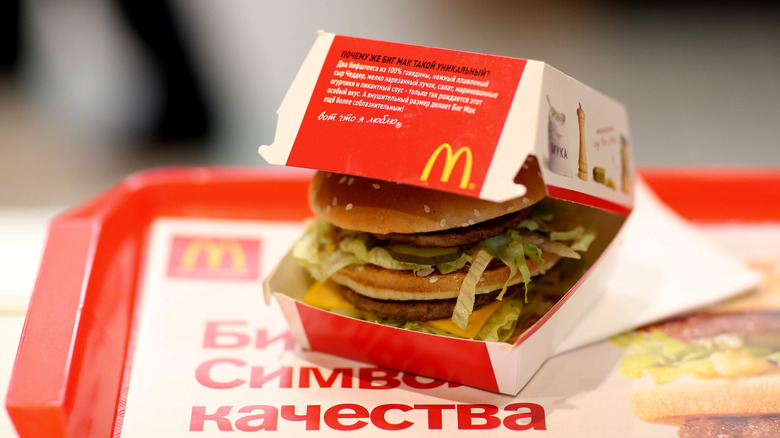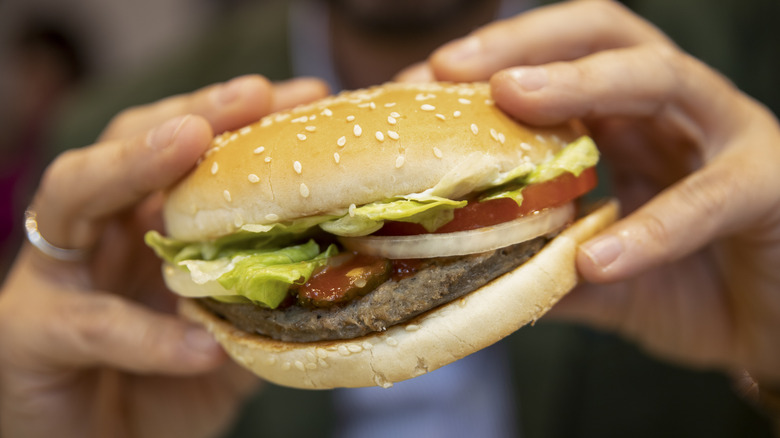McDonald's And Wendy's Can Embellish The Size Of Food In Ads, Judge Rules
While it seems as though fast food companies have been embellishing their items' appearance in pictures and commercials since the dawn of time, they now have the legal authority to do so. Many fast food chains are being sued for false advertising, and consumers are frustrated by their misleading promotional material that seems to just be a low-key marketing scam.
The legality of these marketing embellishments was put to the test when many popular chains were faced with hundreds of class-action lawsuits between 2020 and 2022, a stark increase from the previous decade.
However, in a lawsuit win for McDonald's and its fast food rival Wendy's, Hector Gonzalez, a U.S. district judge, ruled that it was not false advertising for the food in these chains' promotional images to look "visually appealing." The judge added that the corresponding websites made nutritional information clear, noting meals' weight and caloric density. This countered the plaintiff's claims that advertisements were promising higher-quality food than customers were receiving and that undercooked burger patties were being displayed since they appeared bigger and more appetizing.
A new wave of fast food marketing may be on the horizon
In a similar lawsuit against Burger King, the chain claimed that "reasonable consumers" are well aware that marketing material for food is designed to entice people. However, they deny any misleading accusations, noting that a quarter pound of beef is always used for every whopper. Of course, defining what constitutes a "reasonable consumer" can be legally complicated.
While the rise of chatter in online communities like Reddit has created more awareness around companies' clever marketing strategies and unrealistic product promotions, social media marketing may be every fast food chain's new ticket to transparency. In TikTok and YouTube's respective food-review niches, viewers can see real versions of products and receive honest reviews from creators they trust.
Additionally, McDonald's and Burger King were sued for misrepresentation in 2022 due to their use of PFAS, or "forever chemicals," in their packaging, which consumers claimed were health risks. This speaks to another growing issue surrounding food safety laws and consumers' rising awareness: Ultimately, fast food marketing trends must follow consumer demands, and some are predicting a "wellness wave" approaching as the push for healthier choices, simple ingredients, and more sustainability grows among younger consumers.

